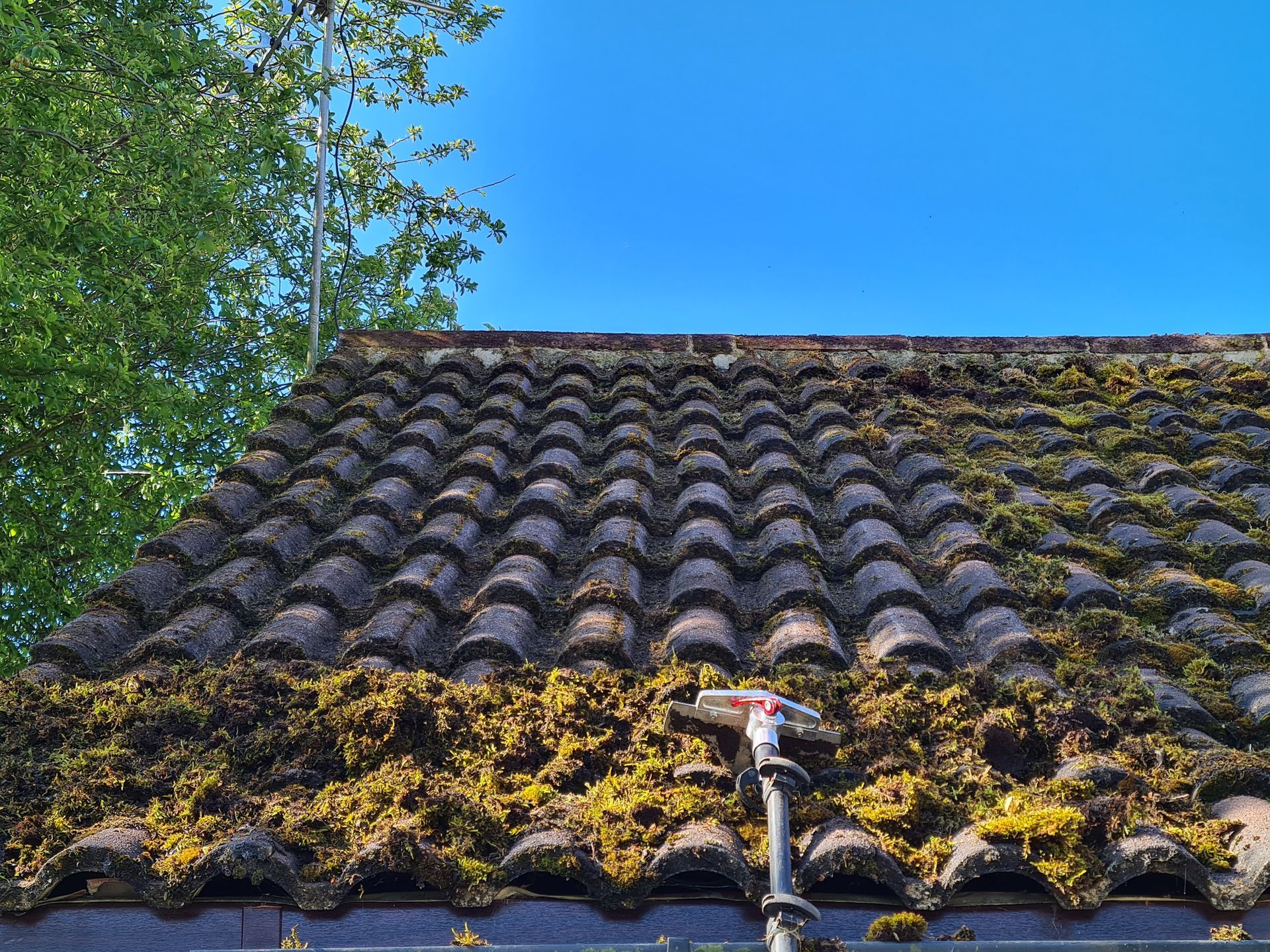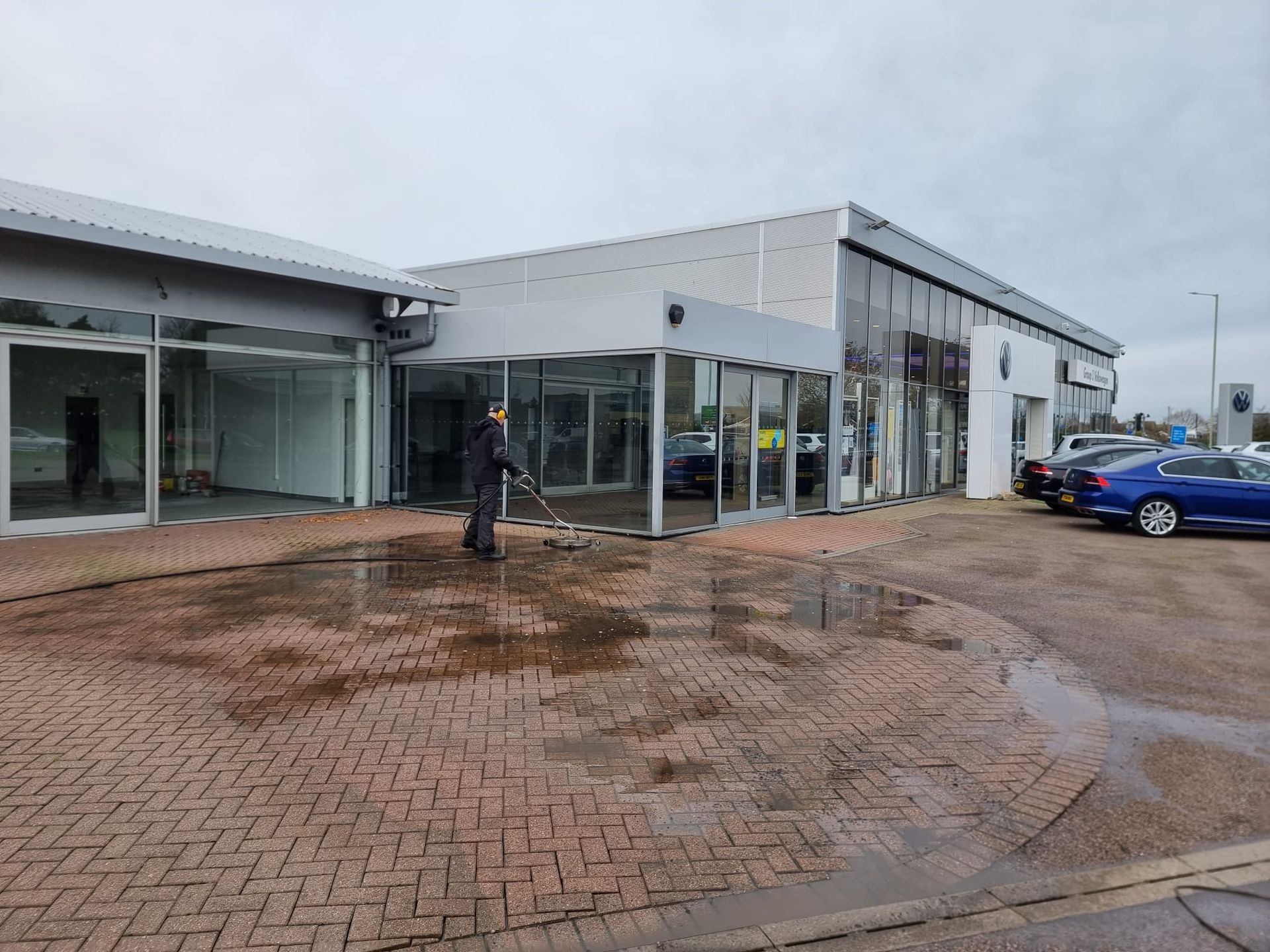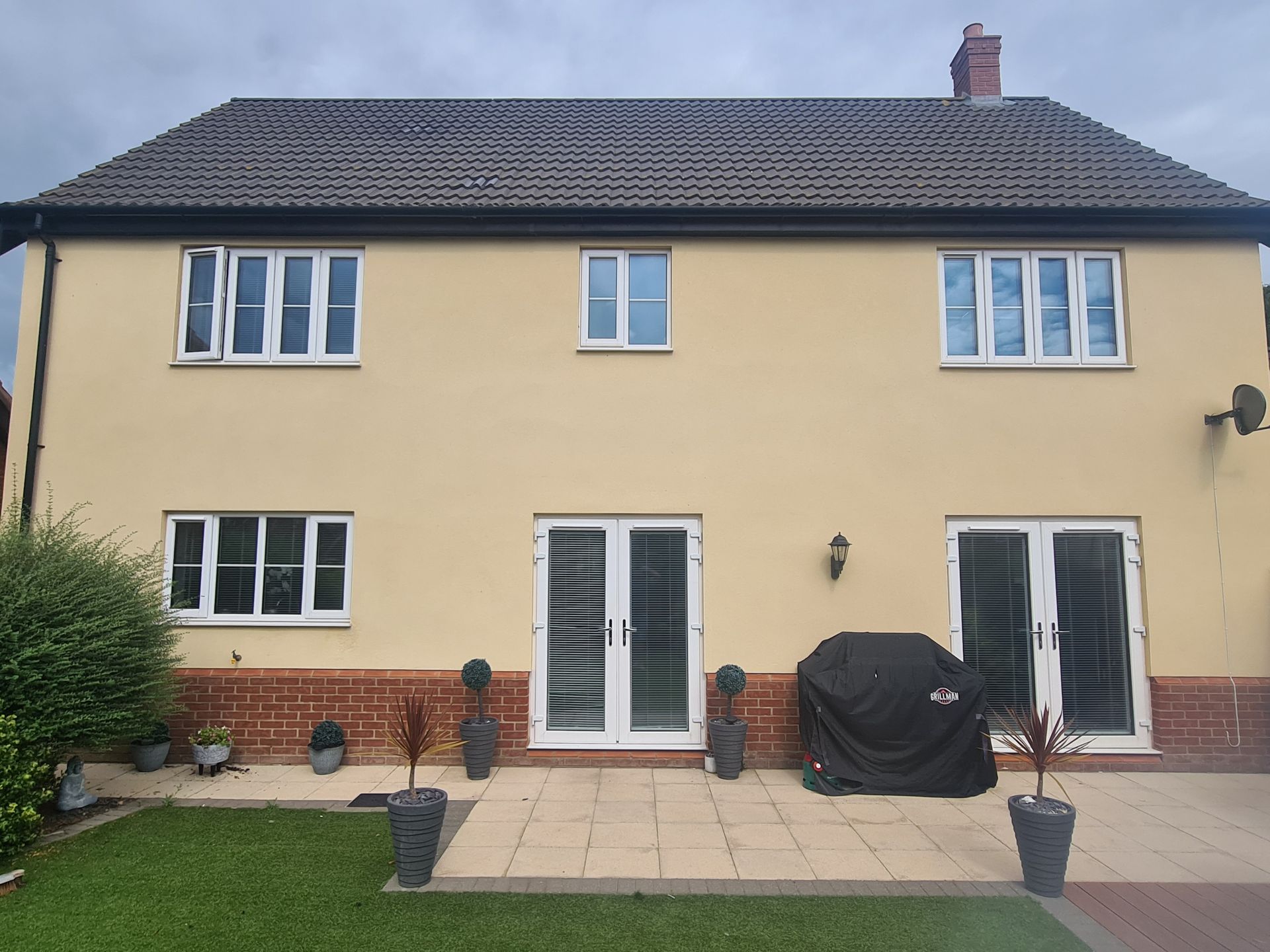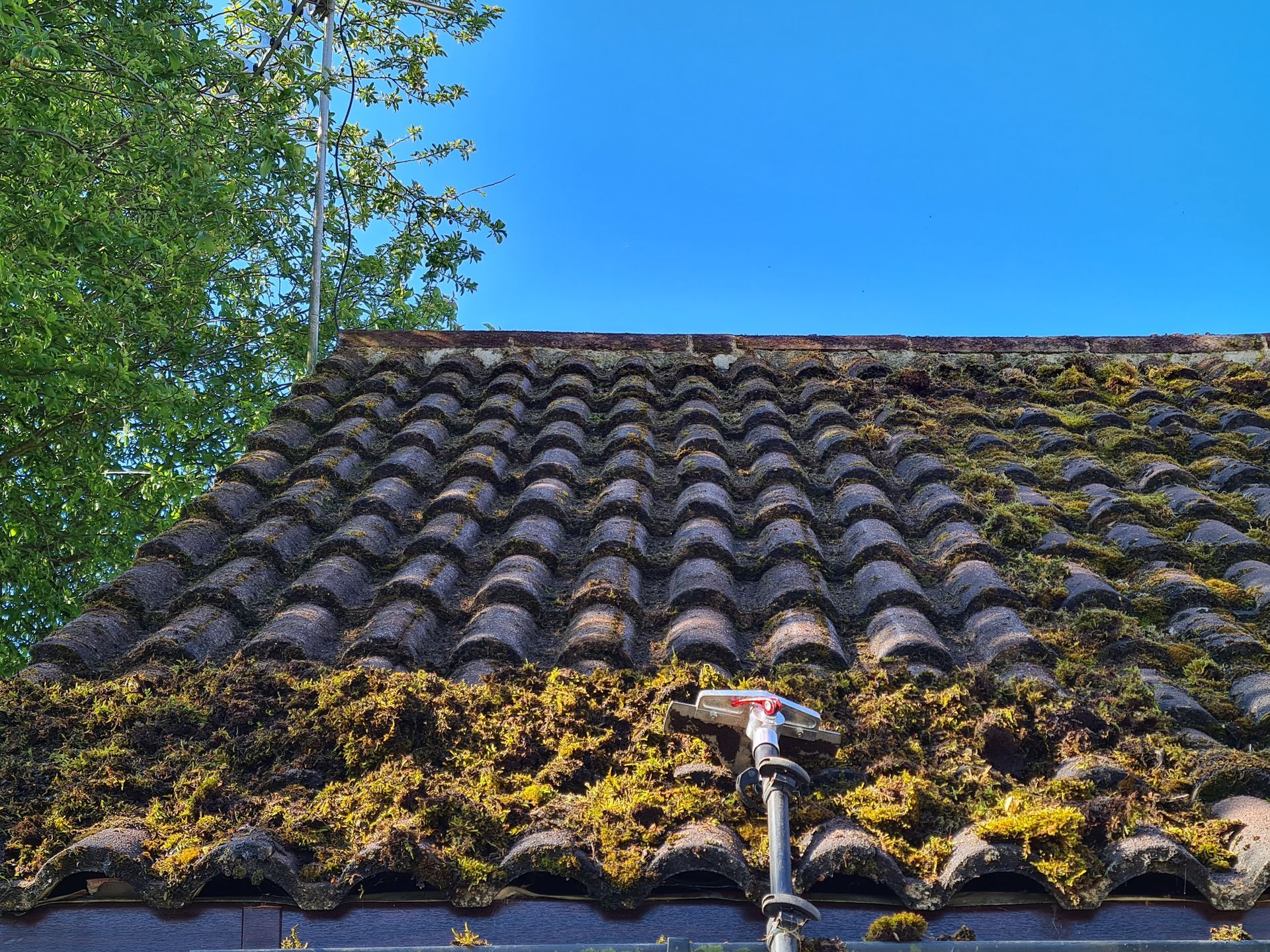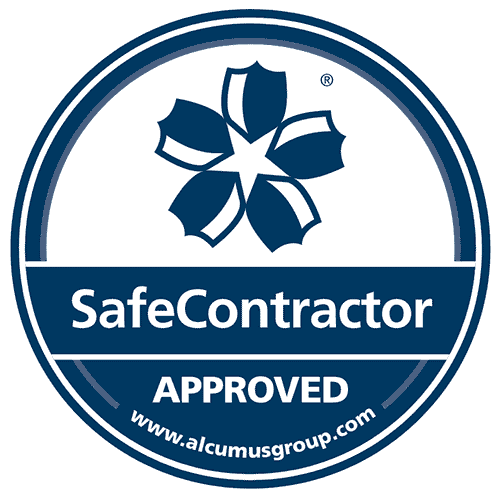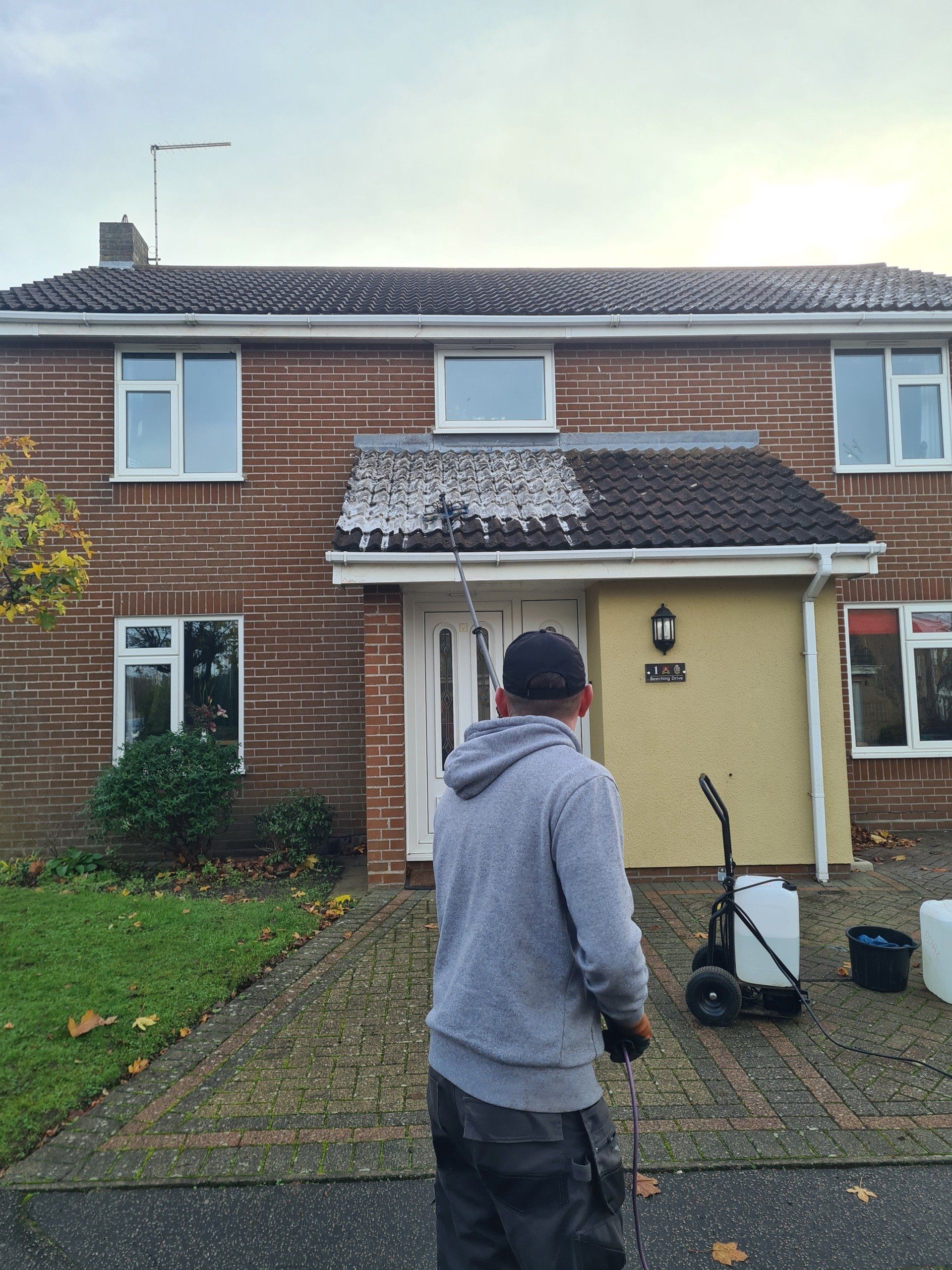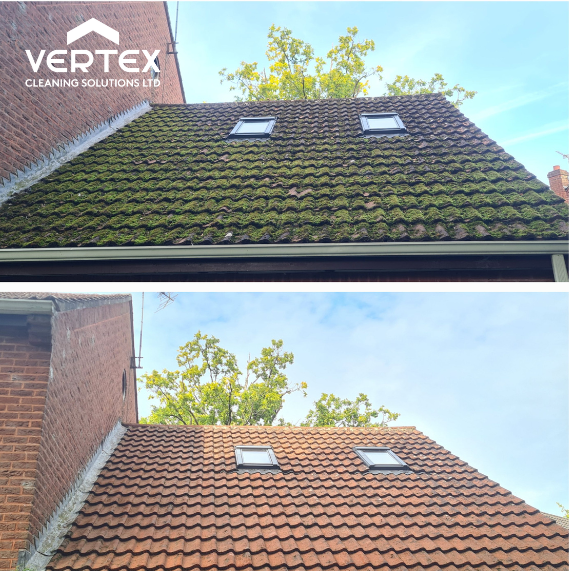What You Need to Know About Biocide for Roof Cleaning
What You Need to Know About Biocide Treatments for Roof Cleaning
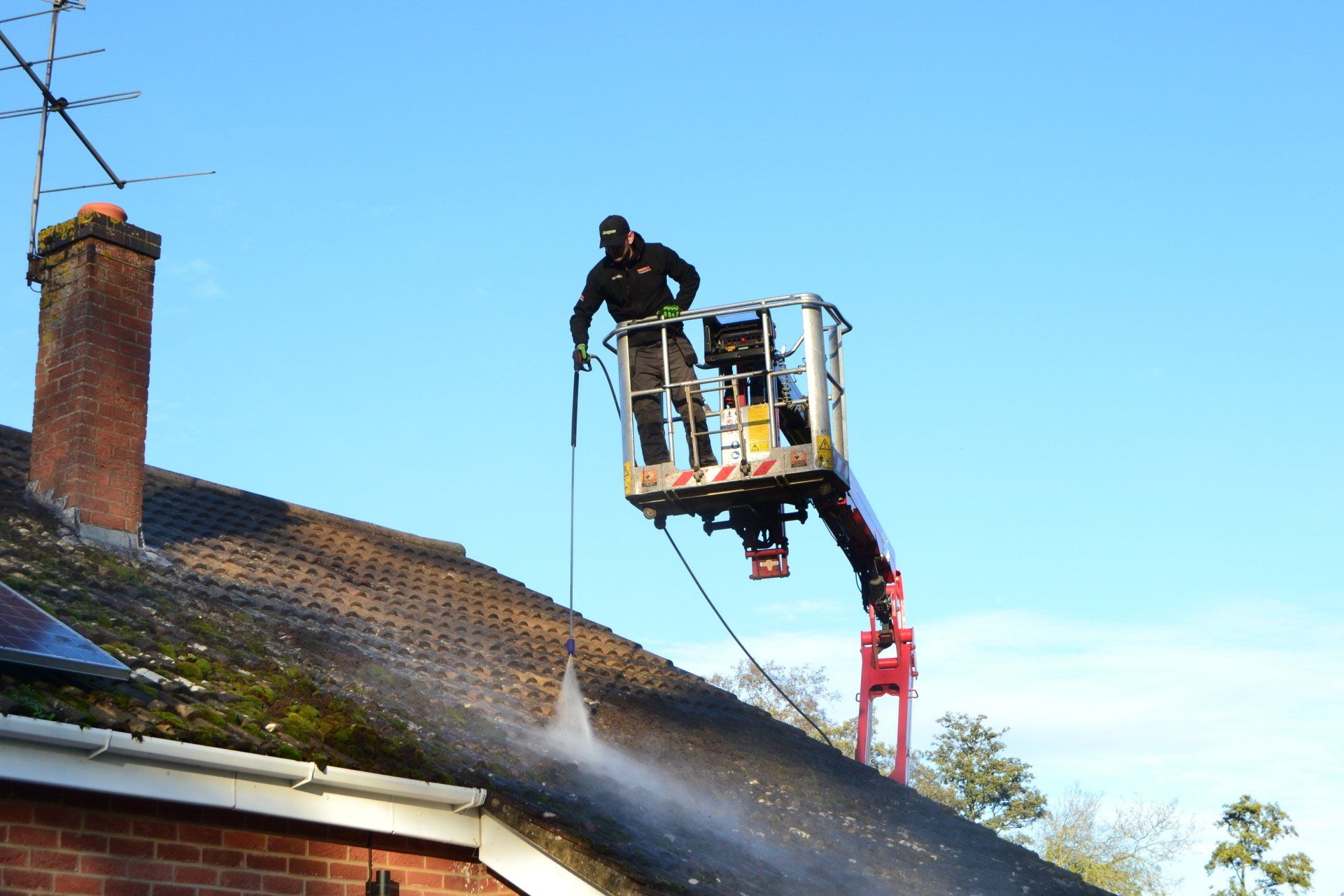
Biocide treatment is a safe and effective substance used to clean roofs that prevent moss, lichen and algae. This blog will help you learn about biocides for roof cleaning; we will cover the following:
- What is a Biocide Treatment?
- How Does Biocide Treatment for Roof Cleaning Work?
- The Benefits of Biocide Treatments for Roof Cleaning
- Biocide Treatment and Roof Cleaning Costs
- Biocide Treatments for Planned Preventative Maintenance
- Biocide Treatments for Roof Cleaning Summary
What is a Biocide Treatment?
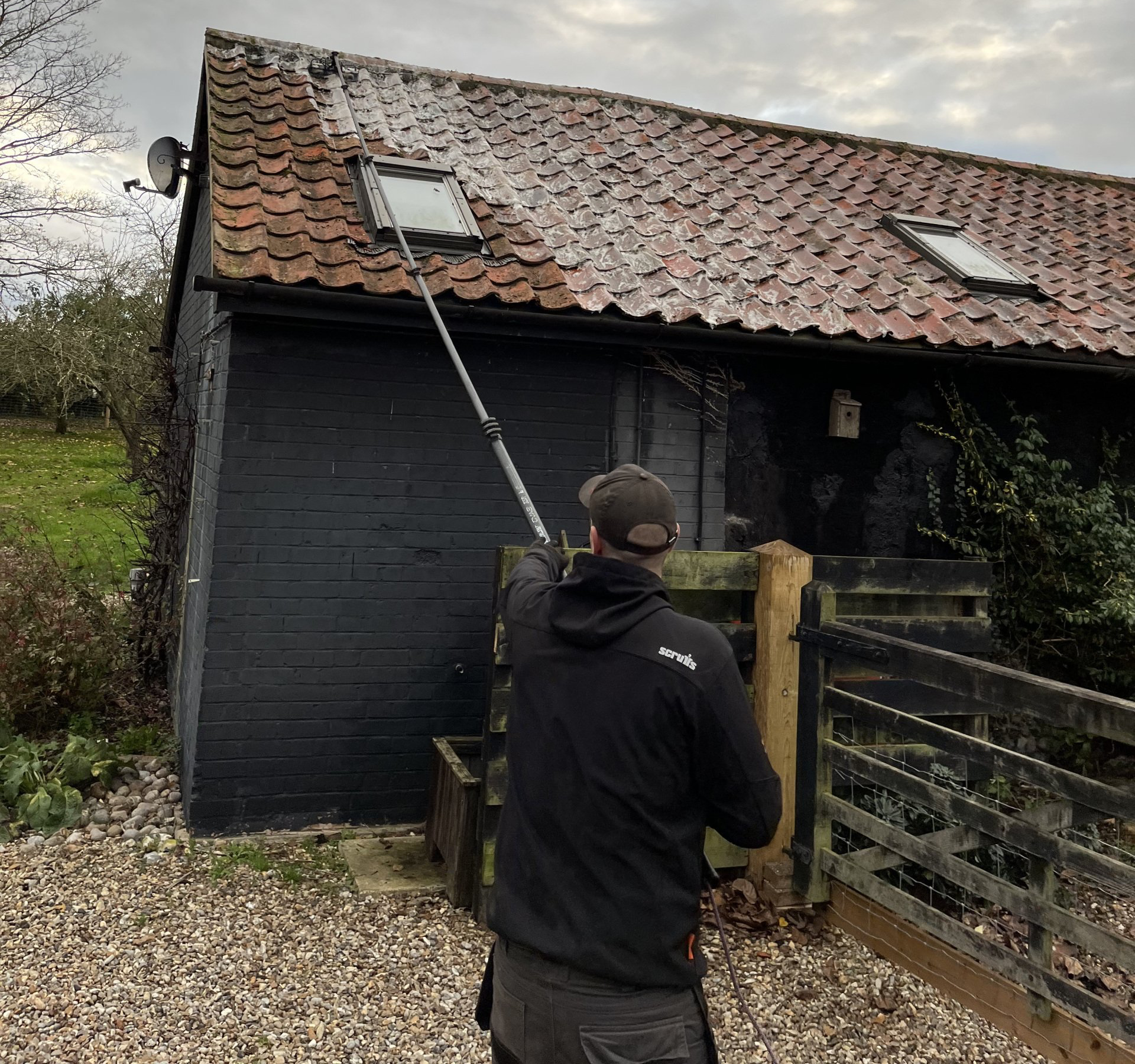
Biocide treatment is a form of microbial control that uses chemicals to destroy or inhibit the growth of living organisms such as bacteria, mould, and algae. When used on roofs, it helps to remove moss, algae, dirt, and other contaminants while keeping the roof in good condition for longer. Biocide treatments added to water create a powerful cleaning agent that can protect against further growth and degradation of roofing.
You can use biocides with traditional methods to clean your roof; they can be part of a routine cleaning process and will not harm your roof's waterproof membranes. However, biocides do not last forever, so you'll need to reapply them every 2-3 years (depending on the product and the local environment).
How Do Biocide Treatments for Roof Cleaning Work?
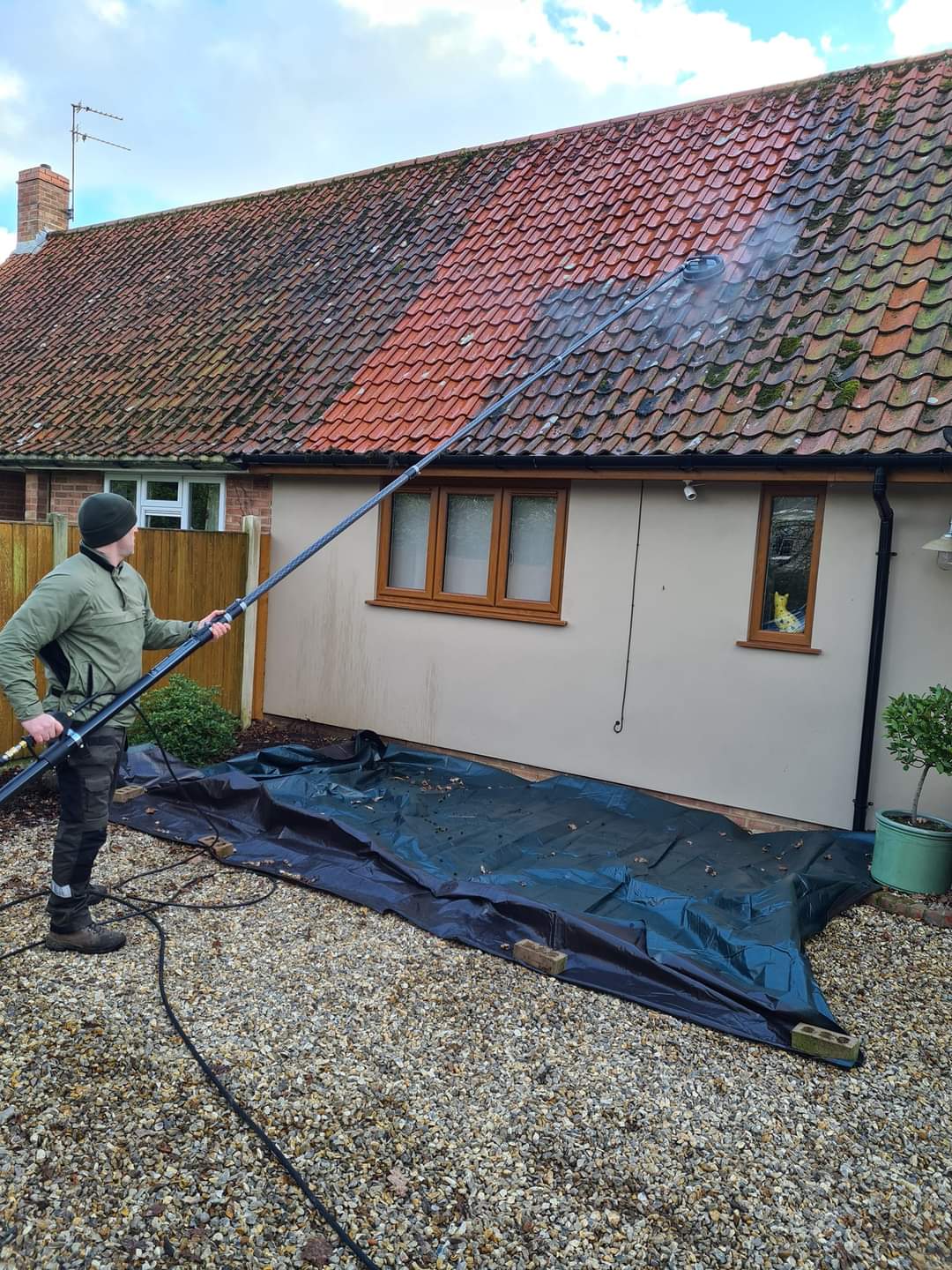
Biocide treatment for roof cleaning is a simple and effective process. The chemicals used in the biocide treatment disrupt bacteria and mould membrane cells, killing them safely and quickly. This helps to eliminate current growth and guard against other moss, algae or bacterial infestations.
The Benefits of Biocide Treatments for Roof Cleaning
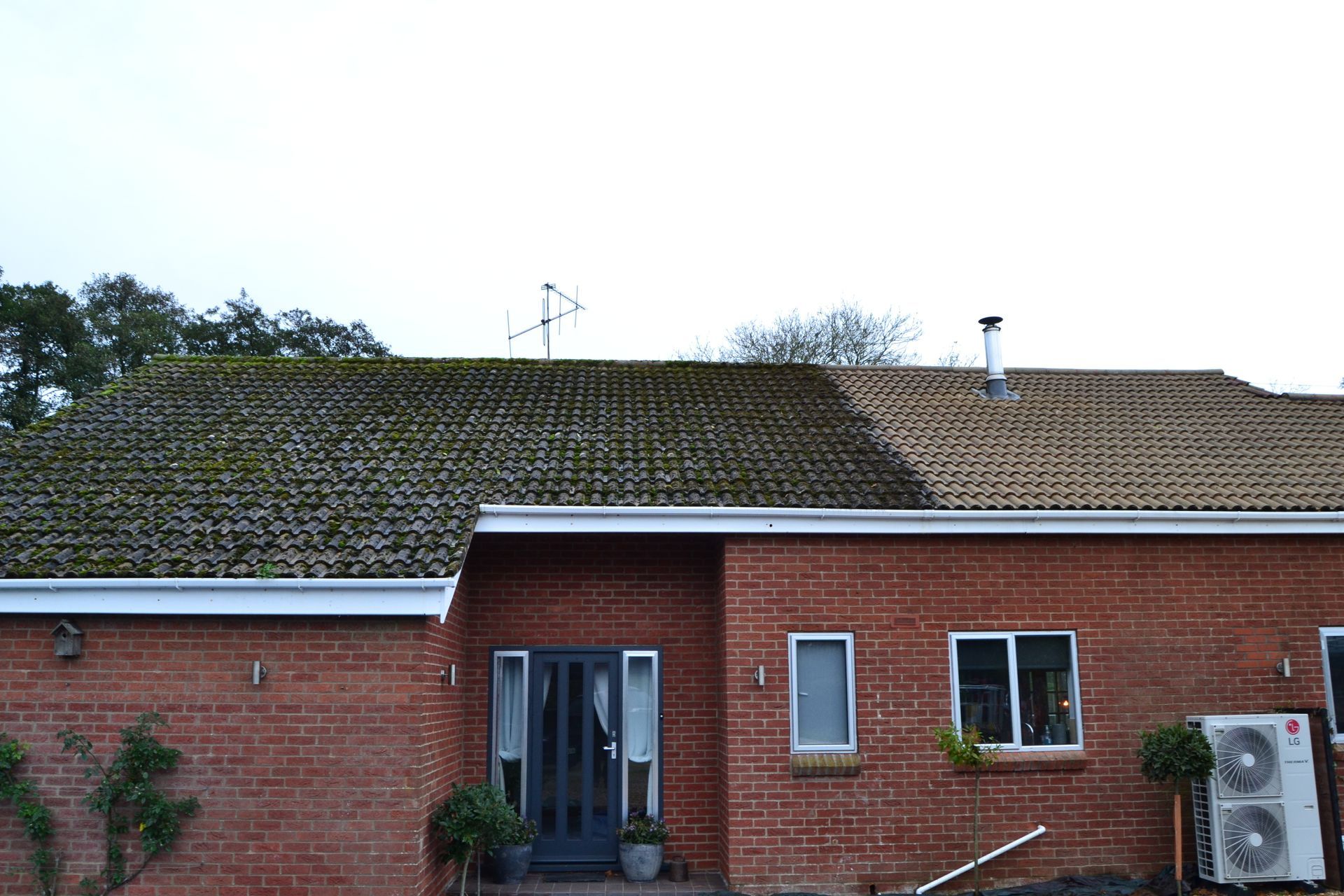
The primary benefit of using a biocide treatment for roof cleaning is that it quickly and safely eliminates the moss, algae, or bacteria on your roof. This can make the surface easier to maintain and keep clean throughout the year. Additionally, the biocide treatment helps to protect against further infestation, ensuring that your roof remains free of any unwanted growth in the future. But, to most of you reading this, it will make your roof look clean and maintained, which is of particular importance for commercial roof cleaning.
Safety Precautions for Roof Cleaning with Biocides
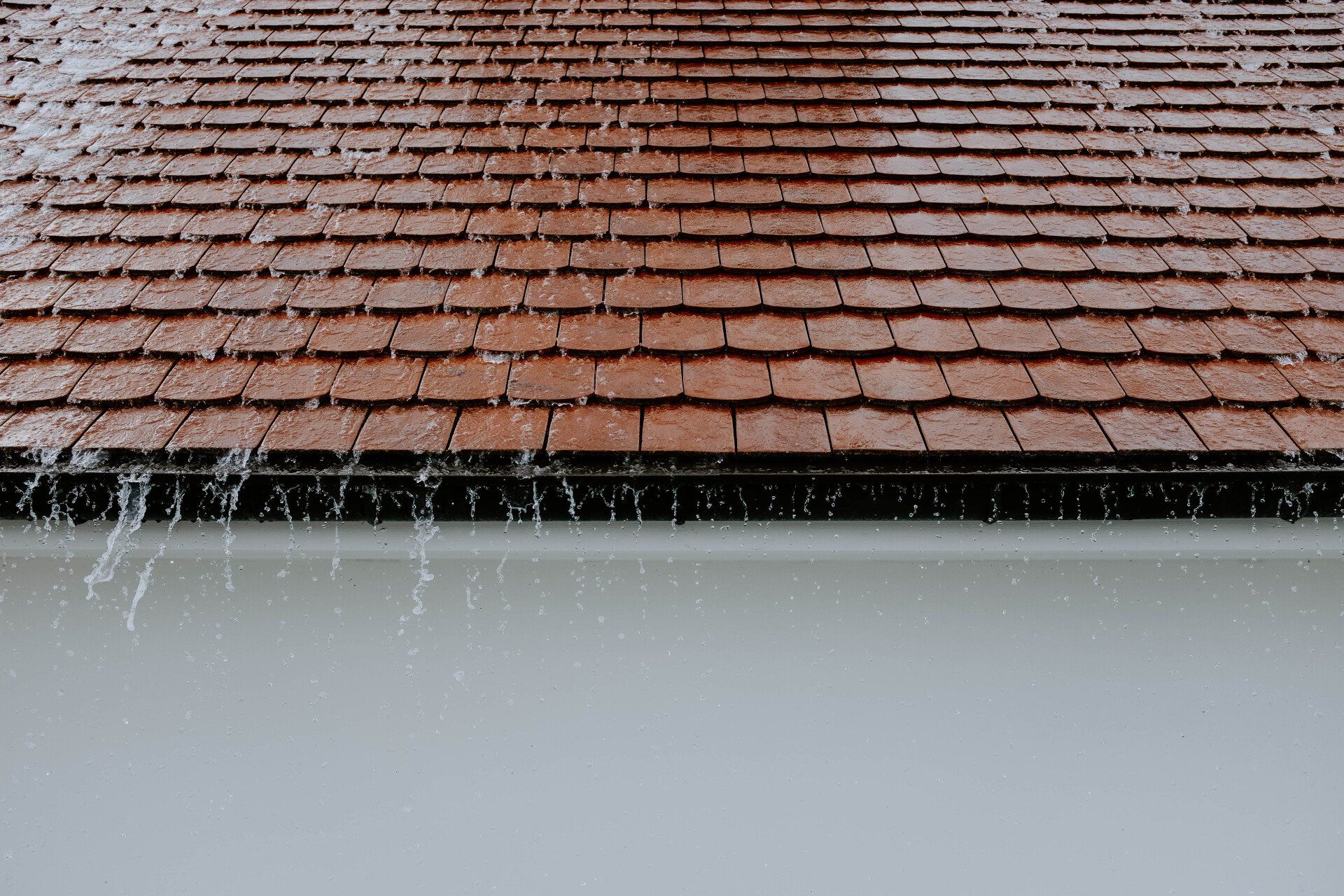
Before using a biocide for roof cleaning, you must understand how to use the chemical safely; taking proper precautions is essential. We strongly recommend you review the product chemical safety data sheet and ensure that you have the correct level of personal protective equipment.
For more information on biocide safety, the HSE provides these helpful resources:
Biocide Treatment and Roof Cleaning Costs
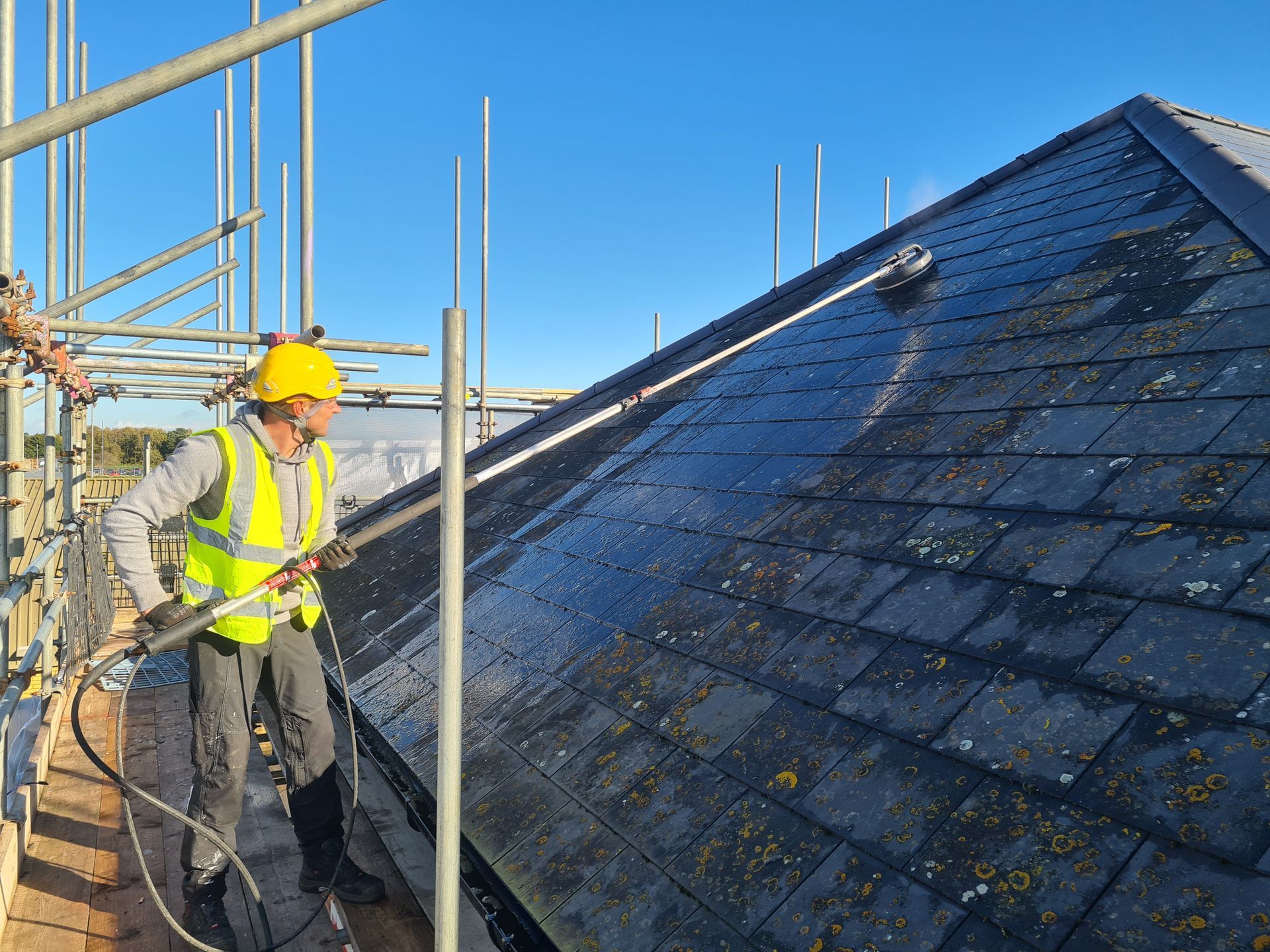
Biocide treatments are an effective and cost-efficient way to keep your roof clean, but the process has an associated cost. Prices may vary depending on the size and type of roof and other factors like the amount of biocide needed, labour costs, and materials. however, you can be expected to pay between £500 and £1200 for a professional roof cleaning with a biocide treatment to prevent regrowth. But by investing in roof cleaning with a biocide treatment, you can ensure that your roof remains free from dirt, moss and lichen.
For a quick quote contact us.
Biocide Treatments for Planned Preventative Maintenance
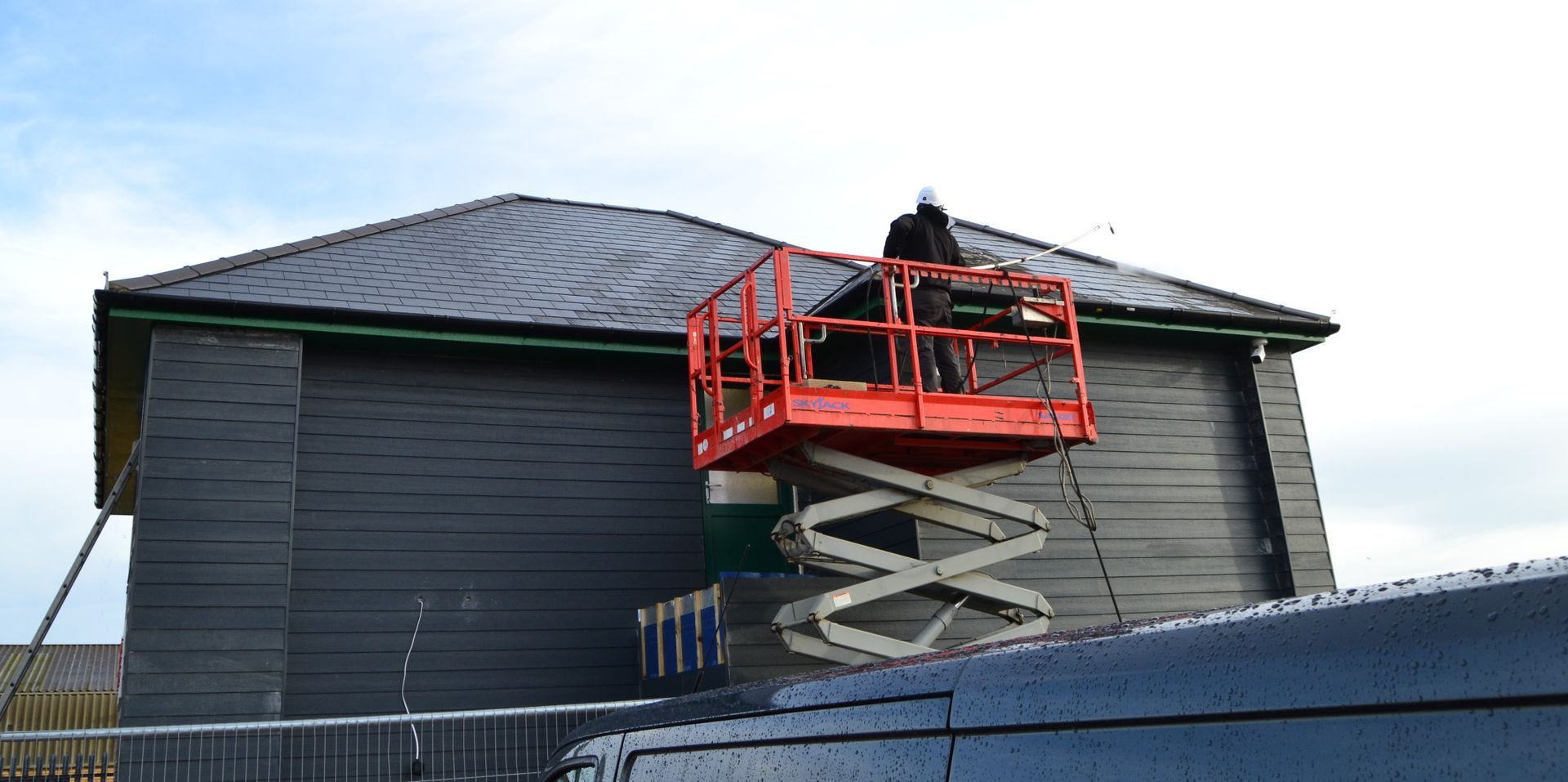
When you hire a professional roof cleaning service, we will likely use biocides to treat your roof. A biocide treatment should be used as part of regular planned preventative maintenance. It is also applied in conjunction with traditional methods (like washing) to remove build-up without damaging the surface of your home's exterior.
Biocide Treatment Summary
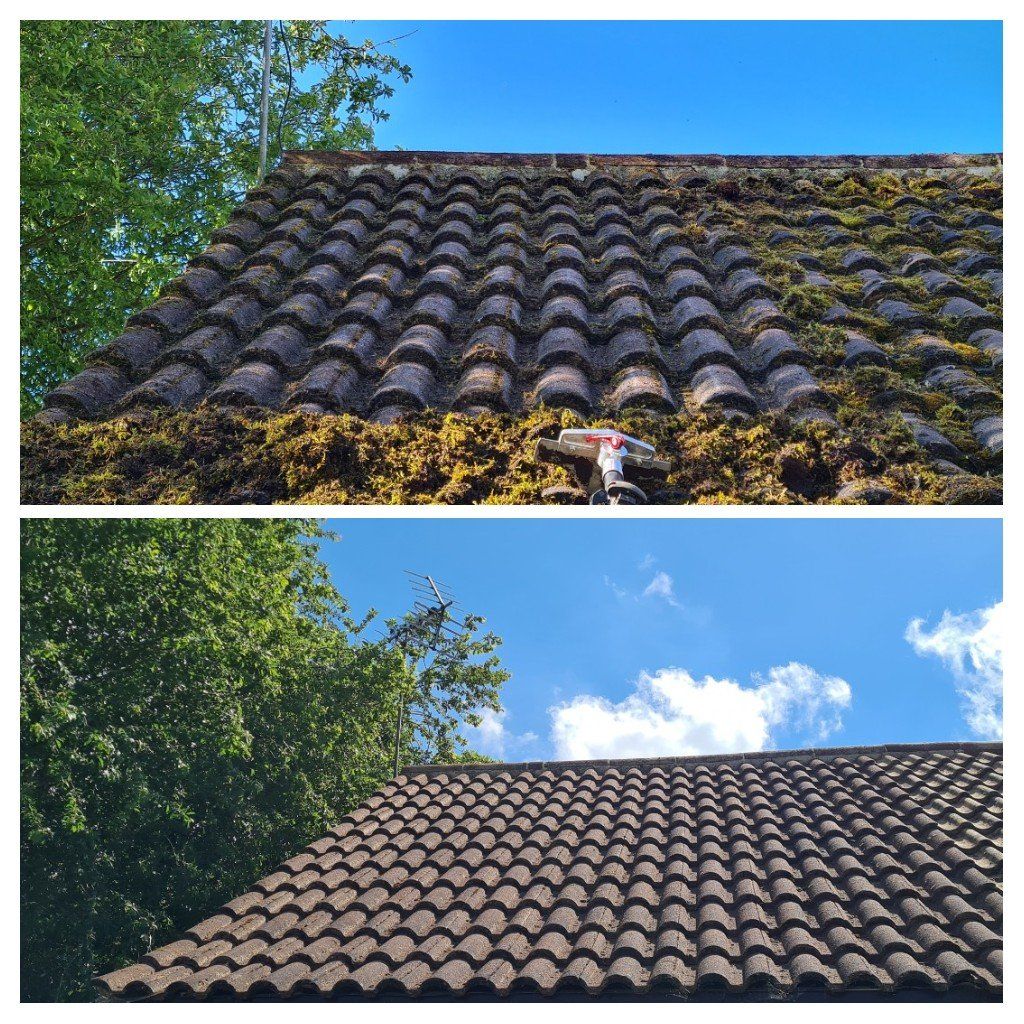
Biocide treatments are an excellent option for anyone with a roof that needs cleaning; the chemical treatment will inhibit the growth of organic materials such as moss and algae. However, we recommend you choose a professional roof cleaning company to carry out your roof cleaning and biocide treatment. This is because we work with biocides daily and thoroughly comply with the relevant health and safety legislation. Moreover, roof cleaning companies can save on the cost of biocide products from approved UK suppliers.
For more information or to book a roof clean and biocide treatment with us please use the form below:

